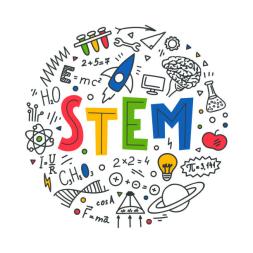
STEM Education
STEAM Education is an approach to learning that uses Science, Technology, Engineering, the Arts, and Mathematics as access points for guiding student inquiry, dialogue, and critical thinking. Integrated STEAM education in European schools is an approach to preparing a quality STEM workforce and literate citizens for a highly technology-based society.
Description
Teachers representing a school staff have a great responsibility and need training because developing STEAM means changing completely the entire approach to teaching and fostering school coordination for more synergetic cooperation among language and different subject teachers.
Target group:
Teachers can be any kind of teacher working in a public or private school or educational institution. Like with all our programs, the present one is flexible and adaptable to special requests, depending on the subject taught or the starting level of the participant.
We always try to connect our learners to local teachers and students to cooperate in developing innovation and networking for future projects. If possible, inside the program, a morning is spent inside a local school, visiting, observing, and cooperating in the realization of one or more lessons.
Training modules
Module 1: Why is STEAM Education Important?
Module 2: STEM vs. STEAM
Module 3: Explore the STEAM Education Model
Module4: How to Use STEAM: Process and Product
Module5: Connecting STEAM Education and Literacy
Module 6: 5 Best Practices for Connecting STEAM with Special Ed
Module 6, Design my own learning and teaching pathway.
What to Look For in STEAM Lessons and Schools. Becoming a STEAM Teacher or School
Learning objectives
STEM (Science, Technology, Engineering e Mathematics) are fundamental matters in the development of the student’s curriculum because they help to teach critical thinking skills and to instill a passion for innovation. Beyond the benefit of learning science, technology, engineering, and math, they assist in problem-solving and exploratory learning that fuel success across a variety of tasks and disciplines.
This Project will improve students' attitudes and performance in the STEM areas of interest.
It wants to find ways to attract students and capture their interest in real subjects: science, technology, engineering, and mathematics, are integral parts of the present and future, that we encounter everywhere.
For this reason, the project wants to encourage students to devote more time to these subjects because they can help them to create their future.
Methodology & assessment
The methodology of the training is based on a combination of three important elements:
• Provision of knowledge required (theory)
• Use of training tools, such as case studies, videos, games, animations & exercises (practice – hands on experience)
• Feedback/reflection (review)
During the delivery of the course, the participants will receive hard copy material, which will cover the content to be presented in all five (5) days of the seminar. The material will be presented in a form of Power Point (PPT) presentations, videos & animations. Moreover, the active involvement and hands on experience of the participants will be secured through various training tools, such as case studies, worksheets, scenarios & exercises. These training tools are necessary to ensure that the theoretical knowledge gained by the participants can be used in real-life scenarios; an important aspect & added value for any training course.
On the final day of the course, the participants will have the opportunity to reflect on the information received and the experience gained in the specific field of study.
Certification details
HOW TO ENROLL
From the moment you want to take part in this course and your organization got a KA1-funding, you can email us to enroll in the course.
ALİ ERDEM
+905543842770
Additional information
-
Language:English
-
Target audience ISCED:Primary education (ISCED 1)Lower secondary education (ISCED 2)Upper secondary education (ISCED 3)
-
Target audience type:Careers CouncillorHead Teacher / PrincipalTeacher
-
Learning time:25 hours or more
